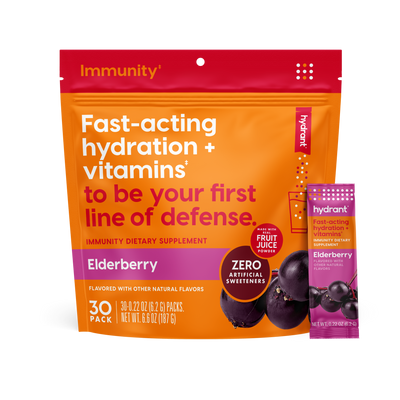Energy drinks are jam-packed with sugar, as well as caffeine and other stimulants. They are often promoted as giving a “buzz” and extra energy to help the drinker focus on mental tasks or improve physical performance. Many people seem to think they do just that, but the scientific literature suggests energy drinks might be doing more harm than good. Severe risks to health have been reported—not just for those who consume the drinks regularly, but even for those who indulge occasionally.
Energy drinks might not be doing what they say on the can.

Many trust the advertisements and hope an energy drink will get them going before sports or an all-nighter [1]. Energy drinks are indeed great at keeping you pepped up and stimulated, but that doesn’t mean they’re the best way to keep on top of your game.
Consuming energy drinks prior to sports may actually be dangerous. The American National Collegiate Athletic Association discourages the use of energy drinks by their athletes, expressing concerns about the potential health risks [2]. During exercise, blood needs to supply muscles with oxygen and nutrients at an increased rate. The cardiovascular system, comprising the heart and blood vessels, responds to exertion by stepping up blood flow. Energy drinks do help our cardiovascular system pump more blood [3][4]. However, it’s currently unclear how safe they are while doing this.
Some research suggests energy drinks may increase the risk of developing life-threatening heart rhythm problems. It’s possible this could account for some of the otherwise unexplained sudden heart-related deaths in young people. Those with undiagnosed heart conditions are particularly at risk if they drink too many energy drinks at once [2][3][4]. Reports are also seen of bleeds in the brain associated with energy drink consumption, due to poor regulation of the blood vessels [5][6].
If you’re the kind of person who relies on energy drinks to help you bounce and jitter from one deadline to the next, to stay up late to finish off that final quest or keep going “one more turn” on video games, you might want to consider the potential health consequences associated with long-term energy drink consumption. Several studies have linked energy drinks to a range of behavioral, emotional, and physical health problems. It appears energy drinks might be linked with increased aggression, fear and phobias, anxiety, sleep disturbance, depression and obesity [2][3][4][5][7]. And while the sugar and other stimulants in energy drinks can help with mental alertness and keep you from dozing off, there is little evidence this will actually improve your academic results [2].
The sugar levels in energy drinks might be doing us harm.

Energy drinks are incredibly high in sugar. Some of the leading brands have as much as 62g of sugar in a single can [3]; for context, that’s nearly ⅓ of a cup of sugar. The World Health Organization recommend no more than 25g of sugar a day for the average adult [7].
All this sugar isn’t good for us; sugar is high in calories that, unused, easily convert into fat. Consuming this much sugar in one drink is particularly damaging, as the resulting spike in insulin increases not just fat build up but also the risk of developing diabetes. But this isn’t the only danger. The sugar rush can make heart problems worse [2][3][4], and even increase the risk of stroke [2][5][6][8]. Sweetened beverages, including energy drinks, have been associated with increasing symptoms similar to those seen in ADHD (attention-deficit/hyperactivity disorder) [9]. There may even be risks of long-term damage to the liver, increasing the risk of liver failure and cancer [10].
Energy drinks contain high levels of many different stimulants.
Energy drinks are designed to give you that “kick” to help you focus on the task at hand. To do this, the drinks are full to the brim with a range of stimulants, including caffeine, guaranine, ginkgosides, taurine, and others [3][4]. These chemicals activate the brain and other organs to operate closer to max capacity, or even above healthy levels of activity [2][3][4]. Stimulants in moderation can be good for you, helping with both alertness and more severe health concerns [11]. However, in the combinations and excessive amounts found in energy drinks, they may cause a range of health problems from anxiety to depression, and even death [2][3][4][5][7].
The combination of sugar, stimulants, and other chemicals in energy drinks might be even worse than any of them alone.
Wondering why you’ve got such a bad hangover after a night of imbibing vodka and energy drinks? Well, you might be lucky not to have woken up in a jail cell [12]. When combined with other drugs like alcohol, energy drinks are widely recognized as making us drink more and act more aggressively [12]. But even without alcohol, energy drinks can have drastic effects on the body, with reports of kidney failure in connection with their consumption [13].
There’s a growing number of countries suggesting legal controls on energy drinks.

Around the world, countries including the UK, Norway, and Australia have a range of recommendations about restricting the sale of energy drinks to minors, with many scientific and health-based communities calling for legal regulation of energy drinks [14][15][16]. In the UK, most supermarkets refuse to sell energy drinks to children under 16 years of age [17]. It’s significant when supermarkets feel an ethical duty to not sell something.
However, energy drink consumption by minors isn’t the only concern. Breastfeeding mothers are advised to avoid them, as evidence suggests nursing babies are more irritable and don’t sleep as well when their mothers consume energy drinks [17]. This can cause a vicious cycle in which sleep disruption tempts the woman to consume even more energy drinks [18].
Consider the alternatives to energy drinks!

Rather than reaching for your favorite energy drink, consider the alternatives available to you. Simply making sure you’re topped up on water, electrolytes, nutrients, and sleep can be the easiest, healthiest way to ensure you’re in top form both physically and mentally. As obvious as this sounds, even doctors forget [19]. However, caffeine isn’t all bad and is widely supported as being a healthy way to improve our mental agility on boring tasks [20].
Consider the alternatives to energy drinks: coffee and black tea, without added sugar or syrups, are common sources of caffeine without the big sugar rush or clashing of multiple stimulants [21]. Green tea is also a great no-added-sugar, dairy-free, lower-caffeine drink to pep you up enough to stay focused, with reduced risk of a caffeine crash later in the day. It’s also packed with antioxidants, helpful chemicals that may help reduce the risk of many serious long-term diseases, such as heart disease and cancer [20].
In conclusion, energy drinks may give you a quick boost of carbs and stimulants, but there’s no good evidence they help you perform better [2]. In fact, they may be doing you harm, both short- and long-term. For the benefits of energy drinks without the drawbacks, consider alternatives such as unsweetened coffee or tea. Or even just check whether you’re dehydrated and just need some water and electrolytes to bring you back into your top form [19].
N.B.: Excessive sugar consumption can have serious long-term health effects. If you’re concerned about your diet, please speak to a medical professional. Caffeine in individuals with certain conditions can be very dangerous. If you’re unsure, please speak to a medical professional prior to consumption.
Writer: Alex Rowe
Editor: Teddy Angert















